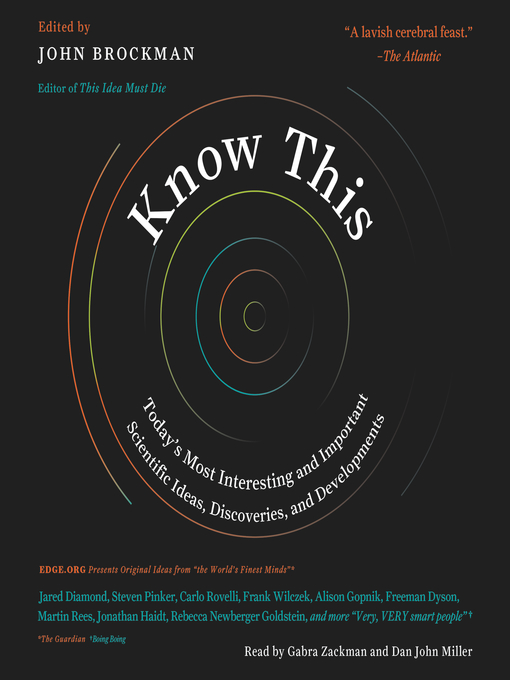The latest volume in the bestselling series from Edge.org—dubbed "the world's smartest website" by The Guardian—brings together 175 of the world's most innovative and brilliant thinkers to discuss recent scientific breakthroughs that will shape the future.
Scientific developments radically alter our understanding of the world. Whether it's technology, climate change, health research, or the latest revelations of neuroscience, physics, or psychology, science has, as Edge editor John Brockman says, "become a big story, if not the big story." In that spirit, this new addition to Edge.org's fascinating series asks a powerful and provocative question: What do you consider the most interesting and important recent scientific news?
Contributors include: Pulitzer Prize-winning author of Guns, Germs, and Steel JARED DIAMOND on the best way to understand complex problems; author of Seven Brief Lesson on Physics CARLO ROVELLI on the mystery of black holes; Harvard psychologist STEVEN PINKER on the quantification of human progress; TED conferences curator CHRIS J. ANDERSON on the growth of the global brain; Harvard physicist LISA RANDALL on the true measure of breakthrough discoveries; Nobel Prize-winning physicist FRANK WILCZEK on why the 21st century will be shaped by our mastery of the laws of matter; music legend PETER GABRIEL on tearing down the barriers between imagination and reality; Princeton physicist FREEMAN DYSON on the surprising ability of small (and cheap) upstarts to compete with billion-dollar projects. Plus: Nobel laureate JOHN C. MATHER, Sun Microsystems co-founder BILL JOY, Skeptic magazine publisher MICHAEL SHERMER, Genome author MATT RIDLEY, Harvard geneticist GEORGE CHURCH, and many more.

